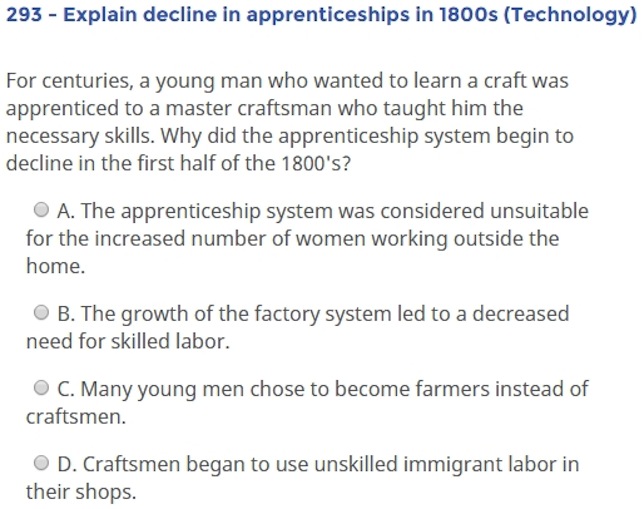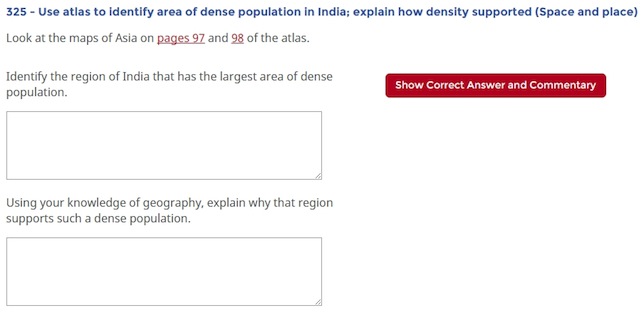Research
Nation's Report Card Holds Steady in Social Studies
- By Dian Schaffhauser
- 04/29/15
Part of the nation's report card is out, and it's holding steady — though far from gloriously so. According to the
National Center for Education Statistics, which administers the
National Assessment of Educational Progress (NAEP), the academic
performance for eighth graders in United States history, geography and civics is pretty much the same as it was in 2010, when the assessment
was last given. However, some student groups have "made gains," the federal agency reported. The same results also found that students are
reading from textbooks less and either listening to or using online resources and computers to find information more.
In the latest round of testing, 18 percent of eighth-graders performed at or above the proficient level in U.S. history, 27 percent
performed at or above the proficient level in geography, and 23 percent performed at or above the proficient level in civics. "Proficient" is
defined as showing "solid academic performance." There are two other classifications: "basic" designates partial mastery of the knowledge and
skills for grade-appropriate work; and "advanced" specifies "superior work." Only 1 percent of participants showed advanced work in history, 3
percent in geography and 2 percent in civics.
The testing was given to a "nationally representative" sampling of 29,200 students in grade 8 across the country. Each assessment was given
to a different group of students and contained multiple choice and constructed-response questions.
Bright spots that surfaced this year include Hispanic students, who made up about a quarter of the test-taking population and whose results
showed gains in all three subjects. White students were the only other racial/ethnic group showing improvement.
The U.S. history questions examined students' knowledge of American history in the context of four themes: democracy, culture, technology
and world role. The overall average score in this category has increased from the first assessment in 1994. Students who were proficient in
history could likely answer this question on the decline of apprenticeship in the 1800s:

The geography assessment covered three content areas: space and place, environment and society and spatial dynamics and connections. There
has been no change in the overall average score for this subject since the first assessment in 1994. Many advanced students were likely to be
able to answer this question about space and place:

Civics questions measured students' knowledge and skills related to five content areas about government and society, including the
foundations of the American political system, the country's relationship with other nations, and the roles of citizens. The overall average
score for civics has increased from the first assessment in 1998. A sample question that was likely to be answered correctly by advanced
students included this question about a shared belief:

The students were asked to comment on their experiences in studying the three subjects of the assessments. The percentage of students who
reported reading materials from a textbook at least weekly decreased from 73 percent in 2010 to 64 percent in 2014. This decrease corresponded
with an increase in the percentage of students who reported using technology-based materials when studying U.S. history.
"The way students are absorbing information is changing," observed Chasidy White, an eighth-grade geography and history teacher in
Brookwood, AL and a member of the National Assessment Governing Board, which oversees
NAEP. "Instruction needs to meet students where they are to improve learning. In my classroom, that means embracing technology and
incorporating discussions about current events. I encourage all teachers to use these reports to spark new ideas for their classroom
practices."
The Nation's Report Card Web site includes interactive reports as
well as full sets of data that can be downloaded for additional analysis.
About the Author
Dian Schaffhauser is a former senior contributing editor for 1105 Media's education publications THE Journal, Campus Technology and Spaces4Learning.